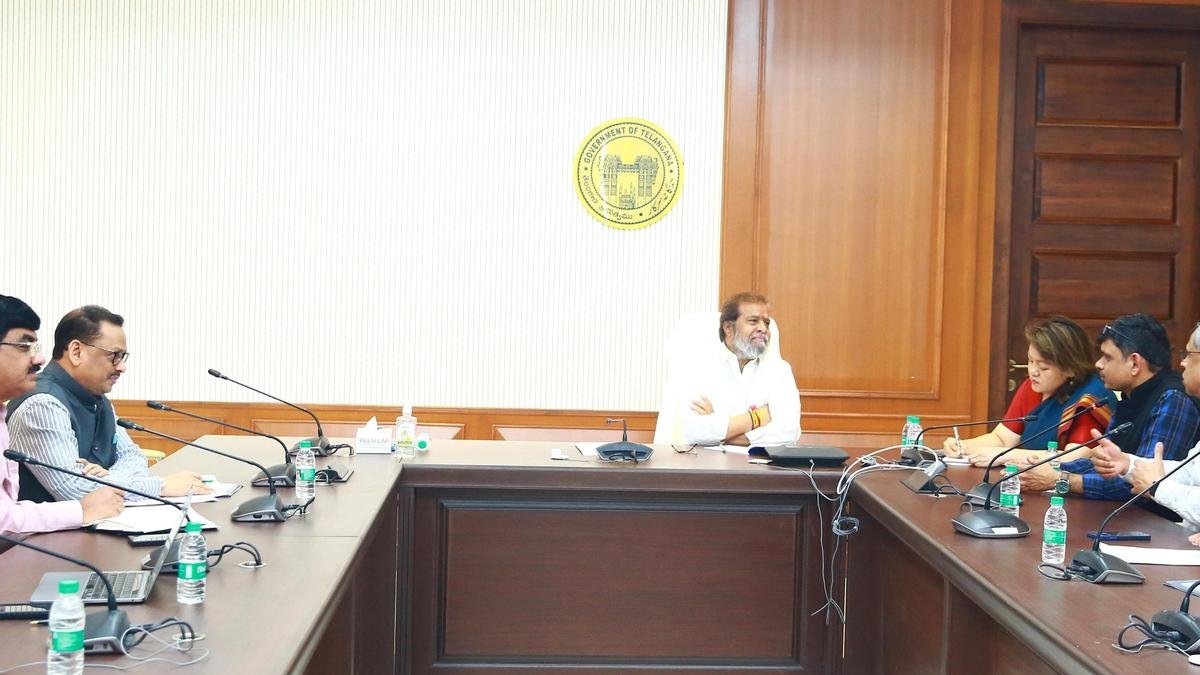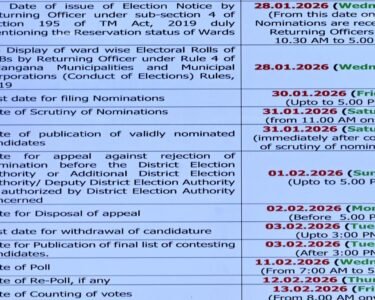In a proactive public health move, the Telangana state government has initiated the process of sending COVID-19 positive samples for genome sequencing. This step comes as a precautionary measure in light of the emergence of new variants of the SARS-CoV-2 virus globally. The state health department has geared up to strengthen its genomic surveillance and track mutations that could affect public health response and clinical outcomes.
Why Genome Sequencing Matters in the Fight Against COVID-19
Genome sequencing is a critical tool in understanding the evolution of viruses. By decoding the genetic material of the virus from infected individuals, scientists can identify new mutations and variants of concern (VoCs), which may be more transmissible, virulent, or capable of evading immunity.
Health experts emphasize that sequencing helps in:
- Monitoring the spread of specific variants
- Assessing vaccine and treatment efficacy
- Taking timely containment measures
- Informing national and global health policy
Telangana’s Preparedness: Collaboration With National Institutes
According to officials from the Telangana Health Department, the state has begun sending COVID-19 samples to INSACOG (Indian SARS-CoV-2 Genomics Consortium) laboratories. The Hyderabad-based Centre for Cellular and Molecular Biology (CCMB) and the Indian Institute of Public Health (IIPH) are among the labs collaborating on this initiative.
Focus on International Travelers and Severe Cases
The initial batch of samples includes those collected from international airports, particularly from passengers arriving from countries with a high prevalence of new variants. Additionally, hospitalized patients, ICU admissions, and breakthrough infections (infections post-vaccination) are being included for sequencing.
This targeted approach ensures the identification of high-risk mutations early, allowing the government to take preemptive action.
Recent Rise in COVID-19 Cases Triggers Alert
Although Telangana has maintained relatively low COVID-19 case numbers in recent months, a slight uptick in cases has prompted officials to act. Several states in India and countries abroad, including the UK and parts of Southeast Asia, have reported new variants, leading to a fresh wave of infections.
To prevent a similar situation in Telangana, the state is adopting a data-driven strategy that includes testing, isolation, and genome analysis.
Integration With National Surveillance Systems
The genome sequencing initiative is part of India’s integrated disease surveillance program, with Telangana actively contributing data to the INSACOG network. This ensures that any variant detected locally is tracked in coordination with national and global health agencies like the World Health Organization (WHO).
Public Health Measures Reinforced
In parallel with genome sequencing, the Telangana government is stepping up its COVID-19 preparedness measures. These include:
- Increasing RT-PCR testing, especially in hotspots
- Ensuring the availability of oxygen beds and ventilators
- Promoting booster vaccine doses for vulnerable groups
- Reissuing advisories for mask-wearing and hygiene in crowded places
The government is also preparing to scale up hospital infrastructure if required, although officials clarify that no cause for panic currently exists.
Vaccine Effectiveness Against New Variants
One of the key insights that genome sequencing provides is how well current vaccines protect against emerging variants. Telangana health officials are closely watching data on immune escape characteristics of any new strain.
Vaccinated individuals testing positive will have their samples prioritized for sequencing to study the virus’s behavior against existing immunization.
Role of CCMB and IIPH in Scientific Analysis
The Centre for Cellular and Molecular Biology (CCMB) in Hyderabad is playing a pivotal role in analyzing viral samples and uploading data to national repositories. Scientists at CCMB are also engaged in researching virus-host interactions and predictive modeling, which could help forecast future outbreaks.
The Indian Institute of Public Health (IIPH) is aiding in epidemiological surveillance and guiding policy decisions through public health data analytics.
Public Cooperation Essential for Effective Surveillance
The Telangana government has urged the public to cooperate with health workers during testing and contact tracing. Citizens are advised to:
- Get tested if symptomatic or after travel
- Take booster doses as per medical advice
- Avoid spreading misinformation about new variants
- Maintain COVID-appropriate behavior in public places
Conclusion: Vigilance Over Complacency
As Telangana steps up its genomic surveillance, the state joins the global effort to monitor and control the evolution of COVID-19. While there is currently no evidence of any dangerous new variant circulating in Telangana, the proactive approach ensures early detection and rapid response.
With scientific vigilance, public cooperation, and strong leadership, Telangana is positioning itself to effectively tackle any future challenges posed by the ongoing pandemic.







